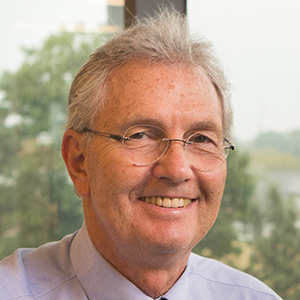Three JLR junior AEs to speak at annual meeting
The Journal of Lipid Research junior associate editors program facilitates knowledge of peer-review processes and trains the next generation of journal editors. Each junior AE is mentored by a JLR associate editor.
The inaugural class of junior associate editors — which included Raymond Blind of the Vanderbilt University School of Medicine, Gissette Reyes–Soffer of the Columbia University Irving Medical Center, Brandon Davies of the University of Iowa Carver College of Medicine and Rotonya Carr of the University of Washington — recently concluded their two-year appointment. As part of their editorial training, each organized a virtual issue highlighting cutting-edge research published by the journal, and they also presented their research at the 2021 American Society for Biochemistry and Molecular Biology annual meeting, which was held virtually. All four subsequently were appointed to regular membership to the JLR editorial board.
The second class of JLR junior associate editors includes six outstanding early-career investigators: Michael Airola of the State University of New York at Stony Brook, Luke Engelking of the University of Texas Southwestern Medical Center, Scott Gordon of the University of Kentucky, Rebecca Haeusler of Columbia University, Renate Schreiber of the University of Graz and Judi Simcox of the University of Wisconsin–Madison.
I am pleased to announce that three of these newly appointed junior associate editors — Scott Gordon, Rebecca Haeusler and Judi Simcox — will present their research at the 2022 ASBMB annual meeting in April during a session titled “Lipid Diversity and Disease: Spotlight on the Journal of Lipid Research Junior Associate Editors.” Please read the articles linked below about these three scientists and the exciting research they will present at the session, which will take place on Tuesday, April 5, at 2:45 p.m. in room 119 of the convention center.
Michael Airola also will speak at the annual meeting in April as the recipient of the 2022 Walter A. Shaw Young Investigator Award in Lipid Research. His talk will be on Sunday, April 3, at 3:30 p.m. in the same room.
And looking ahead — Airola, Luke Engelking and Renae Schreiber all are scheduled to present their work at the 2023 ASBMB annual meeting’s Journal of Lipid Research session.
JLR Junior Associate Editors
|
Using lipoproteins to study heart disease |
 |
|
|
Shifting gears to find the right path |
 |
|
|
Science informed by personal experiences |
 |
Enjoy reading ASBMB Today?
Become a member to receive the print edition four times a year and the digital edition monthly.
Learn moreGet the latest from ASBMB Today
Enter your email address, and we’ll send you a weekly email with recent articles, interviews and more.
Latest in People
People highlights or most popular articles

Simcox wins SACNAS mentorship award
She was recognized for her sustained excellence in mentorship and was honored at SACNAS’ 2025 National Conference.

From humble beginnings to unlocking lysosomal secrets
Monther Abu–Remaileh will receive the ASBMB’s 2026 Walter A. Shaw Young Investigator Award in Lipid Research at the ASBMB Annual Meeting, March 7-10 in Washington, D.C.

Chemistry meets biology to thwart parasites
Margaret Phillips will receive the Alice and C. C. Wang Award in Molecular Parasitology at the ASBMB Annual Meeting, March 7-10 in Washington, D.C.

ASBMB announces 2026 JBC/Tabor awardees
The seven awardees are first authors of outstanding papers published in 2025 in the Journal of Biological Chemistry.

Decoding how bacteria flip host’s molecular switches
Kim Orth will receive the Earl and Thressa Stadtman Distinguished Scientists Award at the ASBMB Annual Meeting, March 7–10, just outside of Washington, D.C.

Thiam elected to EMBO
He was recognized during the EMBO Members’ Meeting in Heidelberg, Germany, in October.

